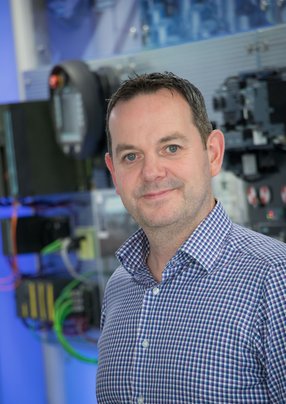
Bernard Magee
Managing Director - eMobility Infrastructure Solutions at Siemens
As electrification is increasingly driven by technology, we found ourselves at the Siemens Transform 2022 conference in Manchester, UK, last year.
Looking back on the year and the electric vehicle (EV) insights that we gained, Bernard Magee, Managing Director - eMobility infrastructure Solutions, provided his perspective on the future of e-mobility as the lead for Siemens.
Having joined the company in 2004, Magee took up his current position in June 2019 and leads the pivotal innovations that are taking place at Siemens to back the shift to e-mobility. We also asked him his thoughts on the state of hydrogen and whether it is feasible for automotive use.
What have been the main challenges you've experienced since starting on this e-mobility journey?
I would say the integration between the charging systems and the vehicles can sometimes be underestimated if you think about the charger. It works using this standard protocol and yes, the vehicle manufacturers are using the standard protocol, but there might be different accents in terms of the language used between the vehicle and the charger.
So it's about ironing out all of those issues and I would almost expect that when we come to a new project working with a different vehicle, our eyes are wide open. We know we need to look out for that.
Do you think hydrogen will come into play?
You don’t believe in EVs without really taking the time to understand them. I believe hydrogen will have a place and I say that about lots of different technologies and solutions. There won’t be a silver bullet here. There'll be a number of solutions, which is fantastic.
I don’t think hydrogen is the solution for cars, it's just not practical. Especially when taking into account the time and skills needed. I think that's understood when it comes to the bigger vehicles, the long distance vehicles, I think there might be a place for hydrogen there. The biggest challenge for hydrogen really is the supply of it and making sure it is clean.
Why is infrastructure such a critical component of hydrogen commercially?
I talk a lot about two things when it comes to charging, obviously charging, but power availability and space requirements, you know, two very important building blocks. And when you think of a depot, particularly a depot in a city, space is a premium.
If there's any spare space in a depot, they're putting a bus on it or a truck on it or a van on it. I've seen hydrogen fuel cell solutions, but the footprint required for some of these solutions is just incredible, not just for the solution itself, it's the safety areas that you need around that.
By the time you build it up, you could probably fit two trucks on it in the garage so it's necessary to consider the practicalities. I think there might be a space for this, believe it or not, in more rural areas. There's lots of space, lots of opportunity to trial out different technologies, such as hydrogen. That kind of thing in more rural areas where perhaps there isn't so much attention at the minute.
What is stopping consumers from adopting EVs?
Probably the media. It’s just too easy to share a bad story, isn't it? There are so many good stories out there that people don’t hear about it. I've had the odd, bad experience charging my vehicle, but I would say 95% of the time it's been an absolute pleasure.
It's an educational piece and we feel obliged to help educate people on this transition. And I think people naturally try to compare putting electrons into a vehicle to putting diesel and petrol into a vehicle. So they always jump straight to that comparison. We can’t do that.


